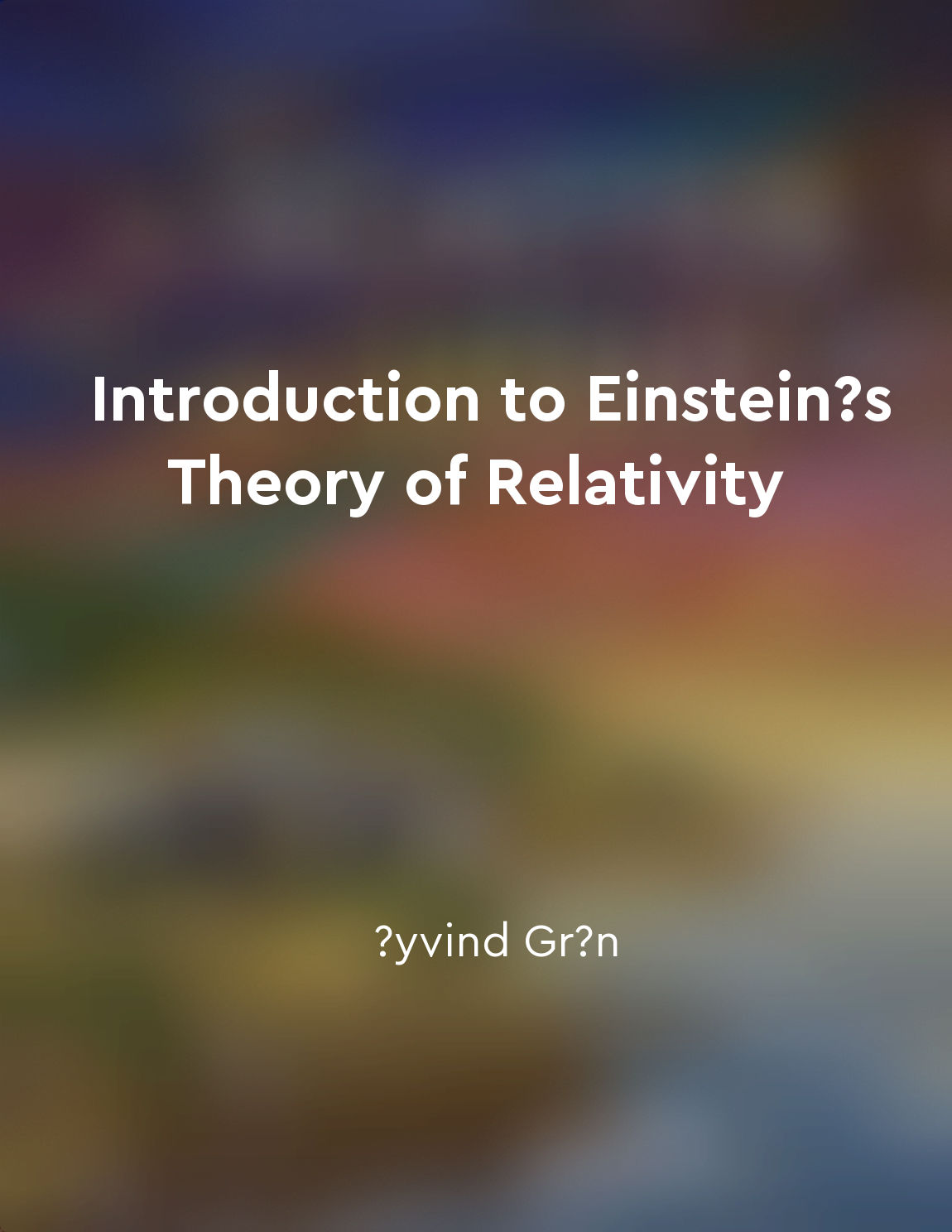Spacetime warp and twist from "summary" of Introduction to Einstein’s Theory of Relativity by Øyvind Grøn
Warping and twisting of space and time is one of the most interesting concepts in modern physics. This phenomenon can be used to understand the physical world, from the very small to the very large. It is a revolutionary way of understanding the universe.- This notion of spacetime warping has long been among the most popular theories in the field of physics.
- Spacetime warps can result in fascinating phenomena, such as time dilation: while observers experience time passing at different rates, what remains constant is the speed of light.
- Through this distortion of space-time, particles can move along in otherwise impossible ways - for example, they could accelerate without actually being exposed to an external force.
- According to Einstein’s research, quantities such as acceleration or velocity, which we typically consider to be functions of time, can also depend on the position in space in a warped universe.
- Einstein’s general theory of relativity states that spacetime is composed of a warped, curved geometry –an idea which suggests that the laws of gravity and motion are inextricably linked to one another.
- When large amounts of matter congregate in one area, it distorts the spacetime around it due to its gravitational force. This means that paths which would normally appear straight appear bent in curved spacetime.
- As paths get closer to the source of a mass, spacetime gets increasingly warped, leading to trajectories with ever greater speeds.
- Special and general relativity concepts have proven pivotal in furthering our understanding of the fabric of spacetime, how matter affects it, and the implications such findings may have.


